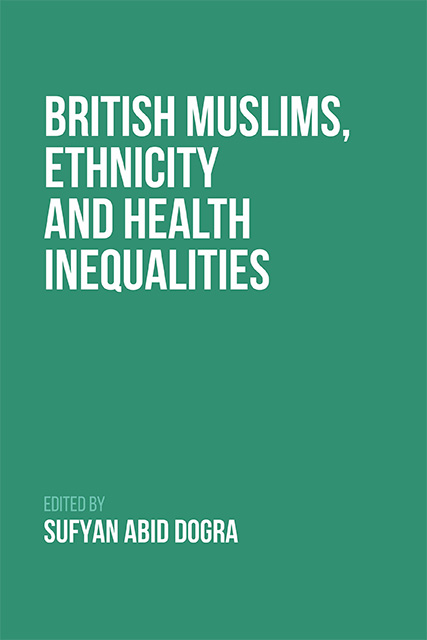17 - British Muslims, Community Engagement and Partnership for Health Promotion: Case Studies From Bradford
Published online by Cambridge University Press: 18 October 2023
Summary
Mosques and madrassas continue to retain their influence and relevance as places of worship, education and social connectivity, and hold the fabric of Muslim communities together in Bradford and elsewhere in the UK (Dogra 2019). Throughout Islamic history, wherever Muslims travelled to distant places or migrated from one place to another, instinctively their first step for community organisation has been to establish a mosque. They do this to follow the tradition of Prophet Muhammad (PBUH), who established a mosque after his migration to the city of Medina from Makkah in the seventh century. Building a mosque in Medina was the first collective social action taken by Prophet Muhammad and His followers to demonstrate a community in the making. The mosque provided a physical space to build meaningful social relations with diverse religious, political and kinship-based groups living in that part of the Arabian peninsula.
The story of assembling social life around mosques has been repeated by forthcoming generations of Muslims for centuries whenever they have migrated from one place to another and for whatever reason. In recent decades, there has been a growing body of literature on how mosques have been instrumental in building the Muslim community and its identity (McLoughlin 2005; Gilliat-Ray 2010; Mughal 2015; Rai et al. 2019; Dogra et al. 2021). British Muslims’ daily life, social organisation, identity preservation and continuity are centred around mosques.
The emergence of mosques in Bradford, in northern England, is no exception to the Islamic tradition. Bradford has a sizeable Muslim population and Bradford Muslims take pride in pioneering the idea of mosques and madrassas collaborating with mainstream local and national health promotion programmes. In this chapter, we present three case studies from Bradford on the role of mosques in health promotion and explain how research, evidence, partnership, community engagement and activism through mosques and madrassas work side by side with health professionals for the delivery of health promotion initiatives. These three case studies will inform readers about the contributions that British Muslims are making in saving millions for the NHS by volunteering for health promotion and using religious spaces to educate and inform mostly disadvantaged populations who attend these religious settings as captive audience.
- Type
- Chapter
- Information
- British Muslims, Ethnicity and Health Inequalities , pp. 378 - 396Publisher: Edinburgh University PressPrint publication year: 2023



